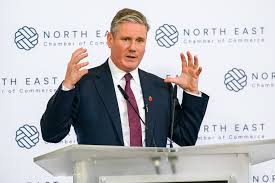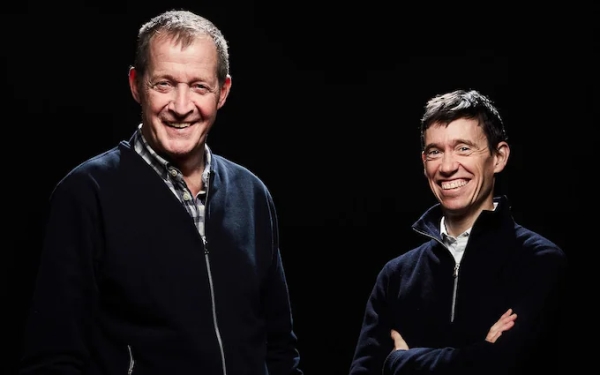
The story of the General Election of 2024 or 2025 is still largely unwritten. Even the date of it is still unknown although we do know it can be no later than January 2025. Are the opinion polls right in predicting a victory for Keir Starmer’s Labour Party or will Rishi Sunak pull off an unexpected Conservative victory? Will the result be a landslide as it was for New Labour in 1997 and 2001 or a Hung Parliament as occurred in 2010 and 2017? Will the SNP vote collapse? Will Reform UK split the Tory vote? Will the Liberal Democrats make a comeback? Only time will tell.
This book takes us through the last fifty British General Elections starting just before the Great Reform Act of 1832 to Boris Johnson shattering the Labour “Red Wall” in December 2019. Each election is covered in an essay by a different author. Michael Crick covers Edward Heath’s unexpected 1970 victory, Peter Snow discusses Margaret Thatcher’s post-Falklands 1983 landslide and so on.

As we generally have never had fixed term parliaments, sometimes elections have become frequent, especially when things are unstable. In 1910 and 1974, there were two General Elections within the space of a year. There were five during the politically turbulent 1830s and four apiece during the uncertainties of the 1920s, 1970s and 2010s. On the other hand, Prime Ministers also went to the country four times during the 1950s, a period usually remembered as being relatively placid. And there were no elections at all between 1935 and 1945 as a result of the Second World War. The 1945 contest saw many thirty-year-olds, having survived six years of war, getting the opportunity to vote in a national elections for the very first time.
Turnout has varied, peaking at 86.8% in January 1910 (at the height of the furore over David Lloyd George’s “People’s Budget”) but reaching a low of 53.4% in 1847. No election has enjoyed a turnout of more than 80% since the Churchill comeback election of 1951. No election has received a 70% turnout since the year of Tony Blair’s first great landslide in 1997. None of the General Elections held in the 20th century ever saw turnout ever drop below 70%. Thus far all six of the elections held in the 21st century have done so. Only 59.4% turned out to ensure Tony Blair beat William Hague in 2001. 68.8% voted in the election which saw Theresa May beat Jeremy Corbyn in 2017.

No party has ever won a majority of votes cast in any of these General Elections except for the Conservatives in 1886 (51.4%),1900 (50.2%) 1931 (55%) and the Liberals (previously known as the Whigs) in eleven elections between 1832 and 1880, a period during which they dominated a political environment in which there was only one other political party. Seats wise, the Tories peaked, winning 412 seats in the 1924 vote which defeated the first ever Labour government but won the least seats (157) in the year of the 1906 Liberal landslide. The Liberals, in contrast, won the most MPs they ever won in the first ever election in which statistics are available: 441 in 1832. They won just six MPs three times during the lows of the 1950s and achieved that number again in 1970. The newly formed Labour Party, meanwhile, won just two seats in the first election of the 20th century (1900) before hitting their highest ever figure of 419 in the very last one (1997).
In the first 22 of these 50 General Elections, no women were allowed to vote at all.
Statistics aside, some elections have had very surprising outcomes: few predicted Attlee’s Labour landslide in 1945, Ted Heath’s win in 1970, Harold Wilson’s return in early 1974 or John Major’s victory in 1992. Few observers expected Cameron to win a majority in 2015 or that Theresa May would lose it again in 2017.
In the TV age, some politicians have thrived under the glare of the cameras, see Harold Macmillan, Harold Wilson, Margaret Thatcher or Tony Blair. Some conspicuously haven’t: see Edward Heath, Michael Foot, Gordon Brown or Ed Miliband. The 2010 election remains the only contest to be significantly enlivened by a round of televised leadership debates. At the time, these greatly boosted the profile of Liberal Democrat leader, Nick Clegg. Yet ultimately the brief wave of “Cleggmania” seemed to yield his party no electoral advantage whatsoever.
Some campaigns have seen our leaders laid low: Churchill’s “Gestapo” speech. Thatcher’s wobbly Thursday. The Prescott punch. Gordon Brown’s “bigoted woman.” Some have threatened to be blown off course by random unexpected factors: the Zinoviev Letter. Enoch Powell’s last minute defection. The War of Jennifer’s Ear. The Foot and Mouth outbreak. The Icelandic volcanic ash cloud.
Some elections end up being defined by memorable slogans: Safety First. Let Us Face The Future Together. Labour Isn’t Working. Get Brexit Done.
What will define the coming contest? We will soon find out. In the meantime, this volume offers plenty of fresh insights into the battles of the past.
Book review: British General Election campaigns, 1830-2019: The 50 General Election campaigns that shaped our modern politics. Edited by Iain Dale. Published by Biteback. March 26th 2024.
































































